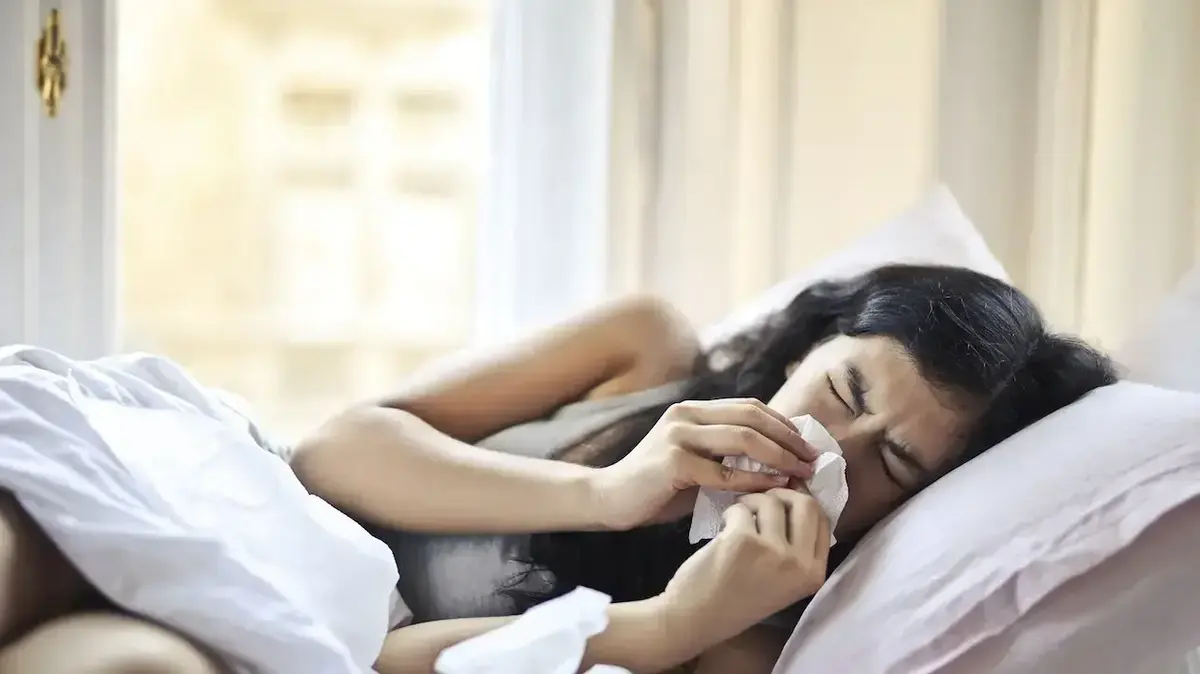The coronavirus is spreading more and more in Germany, but the vaccination campaign is also progressing.
But how long does immunity last after a vaccination or in those who have recovered?
The corona virus is spreading more and more in Germany and the end of the pandemic is apparently still a long way off.
The last hope to return to normal soon remains the corona vaccine.
In order to get the economy going again and to get back to normal as soon as possible, the federal government wants to give back their freedom rights * to those who have been completely vaccinated, or allow more relief, as
reported by echo24.de
*.
But there are still many unanswered questions about corona vaccination: How long are you immune to corona?
Does the vaccination have to be refreshed?
After corona vaccination or illness: Scientists assume six months of vaccination protection
Janina Plato from the “Pro Seniore Residenz Frankenhöhe” in Mainz and her team received their second vaccination in February and are now asking: “How long will it last? How long are we protected by the vaccination? ”To find out, she started a self-experiment, as reported by ZDF. She did an antibody test with three other colleagues. "Three of us apparently had a very high antibody value, one colleague had a significantly lower one," reports Plato. How does such a result come about?
The scientists are currently assuming that vaccination protection after a vaccination or a past illness offers something like six months of protection.
However, this is not exactly researched data.
“We just don't have any long-term data yet,” says Oliver Nolte, head of microbiology at the Center for Laboratory Medicine (ZLM) in St. Gallen, Switzerland, in an interview with ZDF.
But what he could say: "The vaccination protection remains in place for at least six months."
According to studies: immunity in convalescent and vaccinated people about the same
According to a study published in The New England Journal of Medicine, the Biontech / Pfizer vaccine is said to be 90 percent effective for six months after the second vaccination. This vaccine even prevents a severe Covid-19 course 100 percent. However, this corona vaccine is suspected of having serious side effects. Accordingly, Biontech vaccine could cause heart muscle inflammation, as
echo24.de
* already reported.
A Covid-19 illness should also offer a certain protection against renewed infection with the SARS-CoV-2.
This is proven by a study from Denmark, which was published in "The Lancet".
According to the study, those who have recovered are protected for a period of at least six months.
The risk for the elderly is significantly higher here, however: people over 65 years of age were more likely to have re-infections than younger people.
Conversely, does it mean that people who have already suffered from Covid 19 disease no longer need to be vaccinated?
Immunity after vaccination or illness: RKI recommends - those who have recovered should also be vaccinated
As the author of the study from Denmark explains, there is no evidence that protection decreases after a single infection within a six-month period. There is also evidence of so-called "memory cells" that are responsible for longer-lasting immunity. Chinese researchers were able to detect these cells in a study with Covid patients, as did researchers from Johns Hopkins University.
However, there is also evidence that a vaccination protects against infection better than a previous infection. “The immune response triggered by vaccination is very, very strong. The amount of antibodies in the blood is even higher than in comparison groups who had gone through an illness, ”explains Oliver Nolte. “I would just guess: If the values are higher, the protection will probably last longer. That has not been proven. But the data make us optimistic. "
Based on these results, the Robert Koch Institute (RKI) in Germany recommends vaccinations for those who have already recovered.
The vaccination should take place six months after infection at the earliest in order to prevent an excessive immune response, according to the RKI.
In addition, one vaccination dose is then sufficient for those who have recovered.
This would clarify the question of the duration of the vaccination.
But what about the follow-up vaccination - will a refresher of the corona vaccination be necessary?
Immunity after corona vaccination: Vaccination needs to be refreshed because of mutants
It is still unclear whether it will be necessary to refresh the corona vaccination after a certain period of time - similar to a flu vaccination. However, with a view to the virus mutants *, it could be necessary to continue to have full protection. A Corona mutant from India is currently dominating the media landscape. The "double mutant" B.1.617 is spreading rapidly in India. In
a separate article
,
echo24.de
*
has
summarized
whether the existing vaccines are effective against the "double mutant" and how dangerous the variant from India actually is
.
The head of the pharmaceutical company Pfizer, Albert Bourla, described it as a "probable scenario" that a third dose would be necessary.
This is said to be the case anywhere between six and twelve months.
After that, there will probably have to be annual refreshments, but everything still has to be scientifically confirmed, he said in an interview with the
US broadcaster CNBC.
*
echo24.de
is an offer from IPPEN.MEDIA.
List of rubric lists: © Julian Stratenschulte / dpa






/cloudfront-eu-central-1.images.arcpublishing.com/prisa/2C5HI6YHNFHDLJSBNWHOIAS2AE.jpeg)




